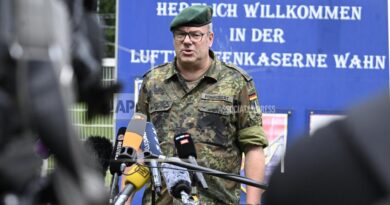Trump Claims ‘Numerous Canadians’ are Interested in Becoming the 51st State of the US
President-elect Donald Trump has once again raised the idea of Canada becoming the 51st U.S. state, stating this time that “many Canadians” are in favor of the proposal.
“Many Canadians want Canada to become the 51st State,” Trump wrote in a Dec. 18 Truth Social post, mentioning that Canadians would “save massively on taxes and military protection.”
Trump has consistently referred to Canada as a U.S. state, with the initial mention occurring during his Nov. 29 meeting with Prime Minister Justin Trudeau.
Trudeau expressed to Trump during the meeting that his proposed 25 percent tariff on Canadian goods would severely impact the country’s economy. Trump responded that if Canada couldn’t sustain itself despite having a large trade surplus, which he estimated at $100 billion, it might as well join as the 51st state, with Trudeau as governor, as per a Fox News report on Dec. 2.
Trump reiterated the claim that the United States is subsidizing Canada in his latest post, suggesting the amount to be over $100 million annually. He did not provide further details on this assertion. The U.S. trade deficit in goods with Canada last year was $62.2 billion, according to the U.S. Bureau of Economic Analysis.
Trump took another shot at Canada and Trudeau in a Dec. 10 Truth Social post, referring to him as “Governor Justin Trudeau of the Great State of Canada,” and looking forward to another trade and tariff meeting.
Public Safety Minister Dominic LeBlanc, who was present with Trudeau at the Trump meeting, was asked by reporters if the president-elect viewed Canada as a “joke” when making his statement. LeBlanc denied this, characterizing the interaction as part of a “warm, cordial relationship” between Trudeau and Trump, mentioning that Trump was “teasing us” and that it was “by no means a serious comment.”
LeBlanc has since been sworn in as finance minister following former Deputy Prime Minister and Finance Minister Chrystia Freeland’s resignation from cabinet. LeBlanc will oversee both the finance and public safety portfolios.
Meanwhile, a Leger poll of 1,520 people nationwide indicated that 13 percent of Canadians supported the idea of Canada becoming a U.S. state. Support was strongest in Alberta, where 19 percent favored the idea, while those in the Atlantic provinces showed the least support, with only 7 percent in favor.
Trump Comments on Freeland Departure
Following Freeland’s unexpected departure from the Trudeau cabinet on Dec. 16, Trump stated on Truth Social that “The Great State of Canada” was surprised by her resignation, and that she was dismissed by “Governor Justin Trudeau.”
Freeland expressed in a Dec. 16 letter that her choice to leave the Trudeau cabinet followed weeks of disagreements with the prime minister on the best path forward for the country. She raised concerns about Trump’s tariff threats, advising the Liberal government to avoid unspecified “costly political gimmicks” and maintain its “fiscal power” in case of a potential trade conflict.
Freeland did not specify which Liberal economic policies she disagreed with. Recently, Trudeau had announced a GST holiday on certain goods and $250 checks for most working Canadians.
Freeland was scheduled to present the Fall Economic Statement on the day of her resignation. While she had set fiscal guidelines in last year’s statement, including a commitment to keep the deficit below $40.1 billion, the latest statement indicated a deficit of $62 billion, surpassing the target by over $20 billion.
Trump mentioned that Freeland’s exit from the Liberal cabinet would enable Canada to secure better deals, stating that her approach had impeded agreements that could benefit the “very unhappy” Canadians.
Freeland was absent from Trudeau’s meeting with Trump last month, despite being the deputy prime minister and heading the cabinet committee on Canada-U.S. relations at the time. She was appointed foreign affairs minister in 2017, just before Trump’s initial term, to lead the renegotiations of the North American free trade deal.
Freeland stated that Trudeau’s decision not to include her in the meeting was “the right choice,” noting that the discussion focused on border security.
Noé Chartier contributed to this report.





